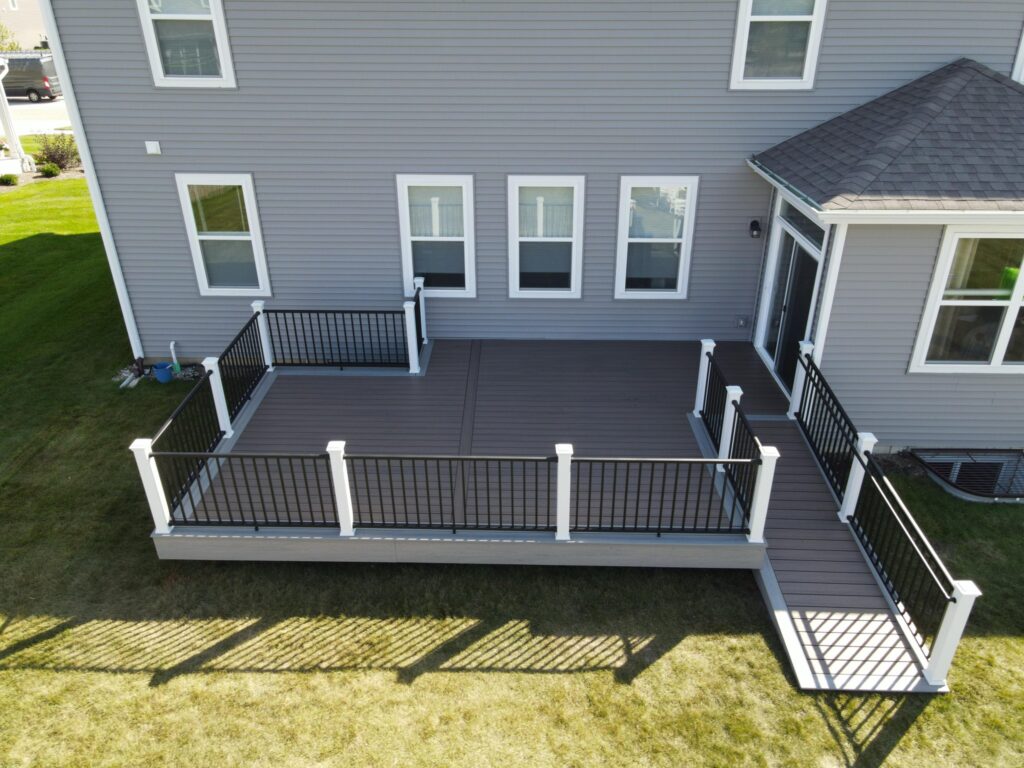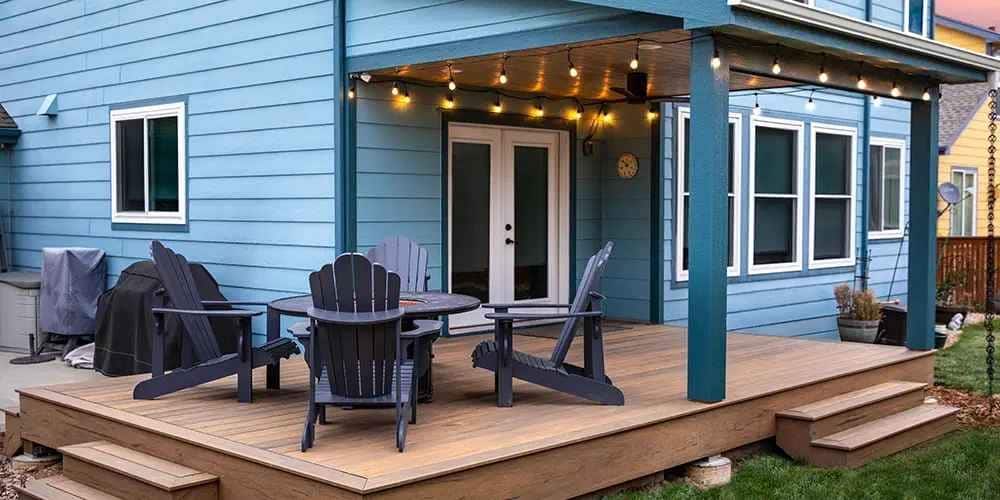Exploring Various Kinds and Advantages of Deck: A Comprehensive Guide
The outdoor deck is more than just an expansion of one's living area; it's a testimony to individual design, a venue for social gatherings, and a refuge to loosen up. The choice of outdoor decking product substantially influences these facets, with options ranging from the traditional allure of timber to the functionality of composite, and the longevity of aluminum. Understanding the subtleties of these materials is necessary, so allow's begin our exploration, one deck type at once.
Understanding the Basics of Outdoor Decking Product
Decking product acts as the foundation of any kind of deck project, determining the general aesthetics, longevity, and performance of the last product. The market supplies a huge series of materials, each with distinct attributes fit to various style preferences and environmental conditions. The option includes natural wood, composite, plastic, aluminium, and also concrete. Timber, being the conventional option, offers a timeless, traditional charm. Compound, a mix of wood and plastic, uses wood-like visual appeals with less upkeep. Plastic and aluminium give contemporary, minimalistic options, while concrete is preferred for its unequaled durability. The option of product substantially influences the deck's life-span, maintenance demands, and resistance to aspects. Therefore, comprehending the fundamentals of decking material is crucial for a successful deck project.
Advantages and Downsides of Wood Decks
In evaluating deck kinds, comprehending the advantages and disadvantages of wood decks comes to be crucial. This includes thinking about variables such as the kind of timber selected and its influence on the deck's performance. The subsequent discussion will check out these points carefully to offer a detailed view of the benefits and disadvantages related to timber decks.

Wood Deck: Pros & Cons
The beauty of timber decks can not be overstated. They show a timeless allure and warm visual that lots of home owners locate irresistible. This natural material is functional, enabling a variety of style possibilities, and can supply an exceptional roi.
Nevertheless, wood decks also include particular downsides. They need constant upkeep, including regular cleansing, staining or painting, and possible replacement of distorted or rotten boards. Timber is also at risk to harm from bugs and severe weather conditions. Its longevity can be much less than other outdoor decking materials, specifically if not appropriately cared for.
Choosing Your Wood Kind

Checking out the Benefits of Composite Decking
Turning interest to composite outdoor decking, it provides special benefits. Its sturdiness outmatches conventional timber in rough climate condition, reducing the requirement for constant upkeep. Furthermore, it supplies a pleasing visual allure with variable layout options.
Composite Decking Sturdiness Perks
In spite of the wide variety of outdoor decking options readily available in the market, composite decking stands out for its longevity. This type of outdoor decking, made from a blend of wood and plastic, gives a durable, lasting system resistant to aspects that typically deteriorate various other products. In recap, the longevity advantages of composite outdoor decking offer a lasting, cost-effective option for exterior living spaces.
Maintenance of Compound Decks
In addition to sturdiness, composite outdoor decking flaunts a significant advantage in terms of maintenance. Unlike standard timber decks, composite decks are not prone to rot, warp, or insect damage, thus dramatically minimizing look at this web-site the requirement for regular repairs and substitutes. The low-maintenance nature of composite decks not just offers ease of maintenance however also adds to their long-lasting cost-effectiveness.
Aesthetic Allure and Irregularity

The Climbing Appeal of Light Weight Aluminum Decks: Why Select Them?
As the need for sturdy and low-maintenance outdoor decking surges, aluminum decks are increasingly coming to be the go-to alternative for many house owners and home continue reading this builders. These decks, made from a light-weight yet durable metal, use several advantages over standard timber or composite decks. Aluminum decks are additionally environmentally friendly, as they are frequently made from recycled materials and can be reused again at the end of their life expectancy.
Maintenance Tips for Different Decking Products
Natural timber decks need regular tarnishing or sealing to stop climate damages, while composite decks require periodic cleaning with soap and water to eliminate discolorations and particles. Understanding these maintenance needs is critical for deck owners to optimize their financial investment and keep their decks looking their finest for years to come.
When Choosing Your Deck Kind, variables to Think About.
Composite decks withstand moisture well, making them ideal for moist or rainy areas. While some may prefer a glamorous, unique wood deck, budget plan constraints may demand a more cost-effective selection like pressure-treated wood. Therefore, environment, maintenance, way of life, and price are essential factors to consider in deck option.
Conclusion
In final thought, outdoor decking products considerably differ, each offering one-of-a-kind benefits that accommodate various home owner needs. Wood decks bewitch with all-natural appeal, while composite and aluminum varieties offer resilience and reduced upkeep. Best Deck Builders Near Me. Nevertheless, the most effective selection relies on specific way of living, environment, and spending plan. Prior to dedicating to a specific deck type, homeowners should carefully take into consideration the benefits, downsides, and maintenance demands of each material.
In reviewing deck kinds, understanding the pros and disadvantages of wood decks click this site becomes critical.In spite of the huge selection of decking choices readily available in the market, composite outdoor decking stands out for its longevity. Unlike standard timber decks, composite decks are not vulnerable to rot, warp, or insect damages, therefore drastically lowering the need for routine repair work and replacements. These decks, made from a lightweight yet sturdy metal, offer several benefits over conventional timber or composite decks. Natural wood decks need regular staining or securing to prevent weather condition damages, while composite decks need regular cleansing with soap and water to remove spots and particles.